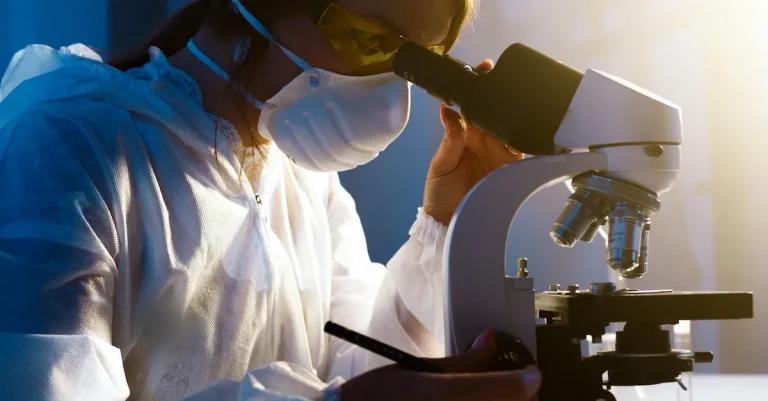Has Science Gone Too Far?
Science and technology are advancing at an exponential rate, raising ethical questions about how far is too far in fields like AI, genetic engineering, and human enhancement. It’s a complex issue with compelling arguments on both sides.
If you’re short on time, here’s a quick answer: In some cases science has gone too far, but appropriate regulations and ethics guidelines are needed to steer research in a responsible direction rather than limit progress.
This article will dive deep into the question of whether science has gone too far, examining key technologies raising concerns, arguments from both perspectives, and principles to guide responsible innovation.
Areas Where Science May Have Gone Too Far
Designer Babies
One area where science has raised ethical concerns is in the field of designer babies. With advancements in genetic engineering, it is now possible for parents to select specific traits for their unborn children, such as intelligence, physical appearance, and even personality traits.
While this may seem like a breakthrough, it raises questions about the potential consequences of playing with nature. Are we tampering with the natural course of evolution? Moreover, there are concerns about creating a divide between those who can afford these technologies and those who cannot, leading to potential societal inequalities.
Dangerous AI Applications
The development of artificial intelligence (AI) has opened up a world of possibilities, but it has also raised concerns about the dangers it may pose. AI algorithms can now perform complex tasks, such as driving cars, diagnosing diseases, and even making financial decisions.
However, relying too heavily on AI can have serious consequences. What if an AI algorithm makes a mistake and causes harm? Who is responsible for such incidents? Moreover, there are concerns about the potential misuse of AI, such as autonomous weapons or AI-powered surveillance systems.
Striking a balance between the benefits and risks of AI is crucial to ensure that we do not go too far in this area of science.
Human-Animal Chimeras
The creation of human-animal chimeras is another area where science may have crossed ethical boundaries. Researchers have been experimenting with combining human and animal cells to create hybrid organisms for various purposes, such as organ transplantation and disease research.
While this may offer potential medical advancements, it also raises questions about the moral implications of creating beings that blur the line between humans and animals. Are we playing with the essence of what it means to be human?
Additionally, there are concerns about the potential for these chimeras to develop human-like consciousness. Stricter regulations and guidelines are needed to ensure that this field of research is conducted responsibly.
While science has undoubtedly brought about incredible advancements and improved our lives in numerous ways, it is crucial to consider the ethical implications of these advancements. The areas mentioned above are just a few examples where science may have gone too far.
As we continue to push the boundaries of what is possible, it is essential to have ongoing discussions, debates, and regulations to ensure that we proceed responsibly and ethically.
Arguments That Science Has Gone Too Far
Violations of Human Dignity
One of the main arguments against the progress of science is the potential for violations of human dignity. Critics argue that certain scientific advancements, such as genetic engineering or human cloning, have the potential to infringe upon the fundamental rights and values of individuals.
These technologies raise ethical concerns about playing with the very essence of human life and manipulating nature in ways that were once considered unthinkable. It is important to consider the potential consequences and ethical implications of these scientific advancements to ensure that they align with our shared values and respect for human dignity.
Unintended Consequences
Another concern raised about the progress of science is the possibility of unintended consequences. While scientific advancements have undoubtedly brought about numerous benefits to society, they have also led to unforeseen outcomes.
For example, the development of antibiotics has revolutionized medicine but has also resulted in the emergence of antibiotic-resistant bacteria. Similarly, advancements in technology have given rise to concerns about privacy, with the potential for mass surveillance and data breaches.
It is crucial for scientists and policymakers to carefully consider the potential risks and consequences of their research to minimize any unintended negative impacts.
Excessive Tampering with Nature
Some argue that science has gone too far in its quest to manipulate and control nature. Genetic engineering, for instance, allows scientists to alter the genetic makeup of living organisms, raising concerns about the potential for unforeseen ecological imbalances or the creation of genetically modified organisms with unintended consequences.
Critics argue that there is a fine line between using science to improve our lives and crossing into the territory of playing “God.” It is important for scientists to exercise caution and consider the long-term effects of their interventions to ensure that they do not disrupt the delicate balance of the natural world.
Arguments Defending Scientific Progress
Advancing Knowledge
One of the key arguments defending scientific progress is its ability to advance knowledge. Through research and experimentation, scientists continually uncover new information and insights about the world around us.
This expansion of knowledge fuels further discoveries and helps us better understand complex phenomena. Scientific progress allows us to build upon previous findings and develop a more comprehensive understanding of various fields, ranging from biology and medicine to physics and astronomy.
It is through this continuous pursuit of knowledge that we are able to make significant advancements in society.
Improving Lives
Scientific progress has undeniably played a pivotal role in improving the quality of human life. Medical breakthroughs, for instance, have led to the development of life-saving treatments and vaccines, increasing life expectancy and reducing the burden of diseases.
From the discovery of antibiotics to the creation of artificial organs, scientific advancements have transformed healthcare and saved countless lives. Additionally, scientific progress has also improved various aspects of our daily lives, from transportation and communication to food production and renewable energy sources.
Without scientific innovation, many of the conveniences and advancements we enjoy today would not be possible.
Pushing Boundaries is Inherently Human
Pushing the boundaries of what is known and possible is an innate human characteristic. Throughout history, humans have constantly sought to explore, discover, and challenge existing limits. Scientific progress is a manifestation of this inherent drive to push boundaries.
It is through scientific experimentation and exploration that we are able to uncover new frontiers and expand our understanding of the world. Whether it is exploring the depths of the ocean, reaching for the stars, or unraveling the mysteries of the human brain, scientific progress allows us to push the limits of our knowledge and capabilities.
By embracing scientific advancements, we embrace our own inherent desire to explore and understand the world around us.
Principles for Responsible Innovation
In today’s rapidly advancing world, scientific and technological innovations have the potential to change our lives in ways we never imagined. While these developments bring numerous benefits, they also raise important ethical and societal questions.
To ensure that science does not go too far, it is crucial to establish principles for responsible innovation. These principles serve as guidelines to navigate the complex landscape of scientific progress while considering the implications for humanity.
Bioethics Oversight
One of the key principles for responsible innovation is the implementation of robust bioethics oversight. This involves the establishment of regulatory bodies or committees that evaluate the ethical implications of scientific advancements, particularly in fields like genetic engineering, cloning, and biomedical research.
These oversight mechanisms help ensure that ethical considerations are taken into account before any potentially controversial or harmful experiments are conducted. Organizations like the Georgetown University Kennedy Institute of Ethics provide valuable resources and expertise in the field of bioethics, supporting responsible decision-making in scientific research.
Precautionary Measures
Another important principle for responsible innovation is the adoption of precautionary measures. This means that scientists and policymakers should take a cautious approach when introducing new technologies or processes that have unknown or uncertain consequences.
By prioritizing the safety and well-being of individuals and the environment, precautionary measures help mitigate potential risks associated with scientific advancements. For example, the European Union’s precautionary principle guides decision-making in areas such as food safety and environmental protection, ensuring that potential hazards are thoroughly assessed before widespread implementation.
Transparency and Public Discourse
A critical aspect of responsible innovation is transparency and public discourse. It is important to involve the public in discussions about scientific advancements that may have wide-ranging societal impacts.
Public engagement fosters a sense of ownership and accountability, allowing for diverse perspectives to be considered. Open dialogue and transparency also help build trust between scientists, policymakers, and the general public.
Organizations like the American Association for the Advancement of Science promote public engagement in science and provide platforms for informed dialogue on emerging technologies.
Striking a Balance
As science continues to advance at an unprecedented pace, it is important to strike a balance between the potential benefits and the potential risks associated with these advancements. This requires careful consideration of the ethical implications and the establishment of clear guidelines to ensure that scientific progress is made responsibly and in the best interest of society.
Weighing Risks and Rewards
When it comes to scientific breakthroughs, it is crucial to carefully evaluate the risks and rewards involved. While new technologies and discoveries hold great promise for improving human lives and addressing pressing global challenges, there is always the potential for unintended consequences.
It is essential to conduct thorough risk assessments and engage in transparent discussions to weigh the benefits against any potential harms.
For example, the development of genetically modified organisms (GMOs) has revolutionized agriculture and has the potential to address food security issues. However, concerns have been raised about the long-term effects on the environment and human health.
Striking a balance means taking into account both the potential benefits of GMOs and the need for rigorous safety protocols and monitoring.
Developing Clear Guidelines
To ensure that science does not go too far, it is crucial to have clear guidelines and regulations in place. These guidelines should be developed through a collaborative effort involving scientists, policymakers, and ethicists.
They should take into consideration the potential risks, societal impact, and ethical considerations associated with new scientific developments.
For instance, in the field of artificial intelligence (AI), there is a need for guidelines to address concerns such as privacy, bias, and the potential for job displacement. The development of clear ethical frameworks and policies can help prevent the misuse of AI and ensure that it is used in a way that benefits society as a whole.
Fostering Public Trust
One of the key factors in striking a balance is fostering public trust in the scientific community. Transparency and open communication are essential in building public confidence and ensuring that scientific advancements are accepted and understood by the general population.
Scientists and researchers should actively engage with the public, explaining the benefits, risks, and limitations of new technologies in a clear and accessible manner. This can help address concerns and dispel misinformation, fostering a more informed and supportive public opinion.
Additionally, involving the public in decision-making processes through public consultations and citizen science initiatives can further enhance trust and ensure that scientific progress is aligned with societal values and needs.
Conclusion
While some technologies raise valid fears about science going too far, appropriate regulations and ethics guidelines can mitigate the risks and steer research to benefit society.
With open public discourse and conscientious oversight, we can advance scientific frontiers while still upholding human dignity and precautionary wisdom.







